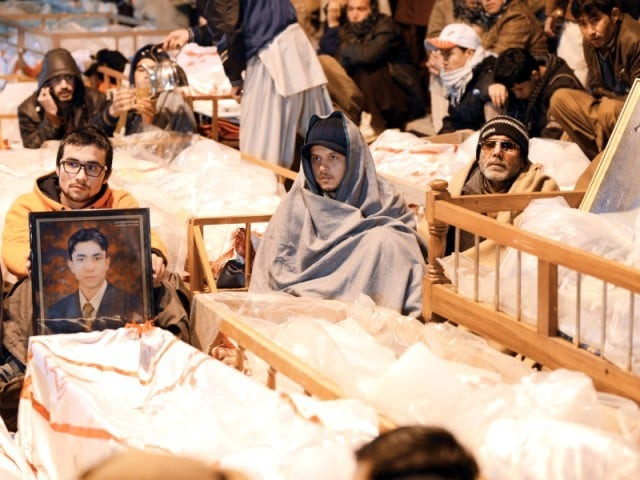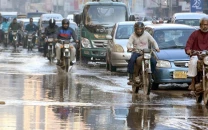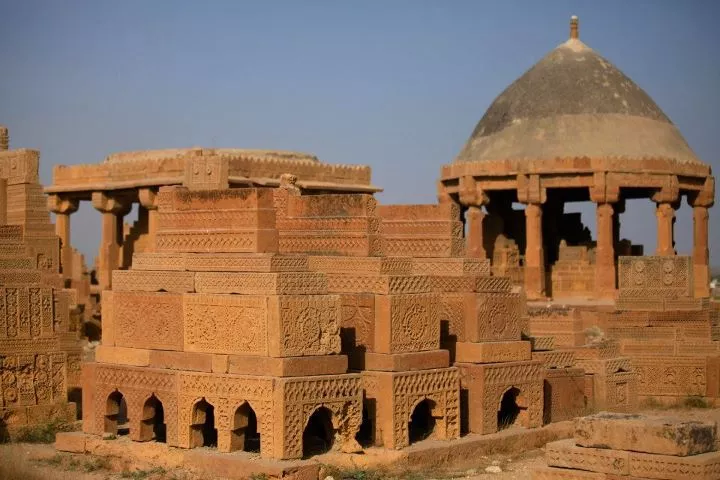Pakistani asylum seeker rues years of limbo in UK system
Liauqat Ali Hazara says Taliban will kill him if he is sent back

PHOTO: AFP
The softly-spoken 37-year-old is a campaigner for the rights of Hazaras, a minority group which faces persecution in Pakistan and Afghanistan.
He first arrived in Britain in 2005 but applied for asylum in 2012 after receiving threatening letters from the Taliban and another hardline militant group, Lashkar-e-Jhangvi.
Read: Hazara campaigner fights deportation from Britain
His application was first turned down in 2013 and now, living with a friend in London and relying on handouts from acquaintances, he has no idea what will happen next.
Hazara said he spent six months in detention centres last year after new evidence to support a renewed claim was rejected by the authorities.
He reported showing up for his usual weekly appointment with an immigration officer but waiting all day before finally being told he was being put into a detention centre.
His face shaded by a baseball cap, Hazara looked down as he told of what life was like in the half a dozen centres he was kept in.
Read: 300,000 people have left Balochistan: HRCP
"It was the worst experience of my life," the former employee of Pakistan's Ministry of Law, Justice and Human Rights told AFP.
It was "much, much worse than prison".
He said he witnessed rioting among detainees, was regularly woken in the middle of the night to be moved between centres and complained that the food was "something that is not even given to the animals".
Several people in each centre would commit acts of self-harm daily, he claimed, adding: "They cannot manage the level of stress they face -- this is why they try to end their lives."
Britain is the only country in the EU which has no limit on the time a person can be held in an immigration detention centre.
The Home Office said it could not comment on individual cases but insisted that the "health and well-being of all detainees is safeguarded".
Read: Knock out: Hazaras toughen up with martial arts training
After a date set for his expulsion passed, Hazara was released from detention in January and has been pursuing his case through the courts to try and overturn the refusal. He is also studying for a law degree.
He came to Britain in 2005 to study for a business degree, which was when he started blogging about the situation of the Hazaras.
He has now stopped that and is trying to keep a lower profile, fearing death if he is sent back to Pakistan.
"If I go back, they are very much powerful to disappear me, even from the airport upon my arrival," he said.
"We are aware that journalists and activists are being killed. First of all they are tortured and then their bodies are dumped, so I cannot expect less than that."
Read: Gunmen kill 13 Hazaras as donors meet in Kabul
A Human Rights Watch (HRW) report last year found that Pakistan's Shias, who make up some 20 per cent of the population, faced "an alarming and unprecedented escalation in sectarian violence".
Thousands of Shias have been killed in the last decade and HRW found that in 2013, nearly half of those who died were Hazaras.
Many of the worst attacks have taken place in Balochistan where the activist is from.
Hazara insisted he was not an economic migrant and was keen to contribute to life in Britain or another Western country prepared to house him by working for minorities and refugees.
"I love this country, I love the people," he said. "I can become very fruitful for the country if the country opens my hand. My hands are tied at the moment."
But his experience and the uncertainty over his future have left their emotional scars.
Asked if he would do anything differently with hindsight, he said he would "rather die" than go through the process again.



















COMMENTS
Comments are moderated and generally will be posted if they are on-topic and not abusive.
For more information, please see our Comments FAQ